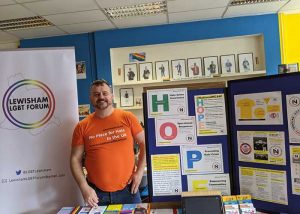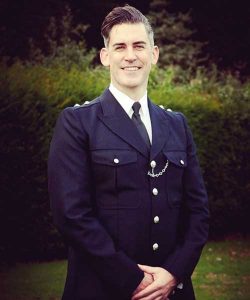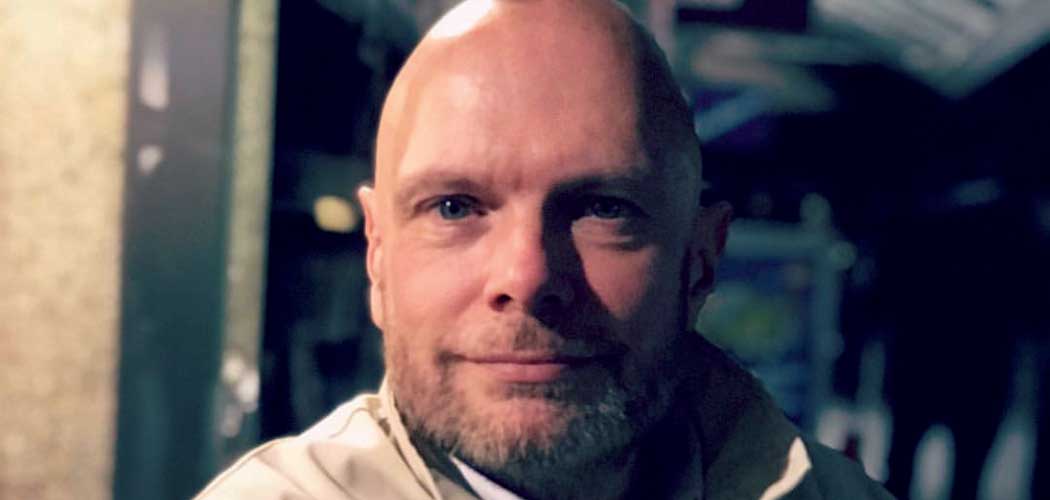Homophobic hate crime has trebled in the last five years – and campaigners say it’s vitally important to report any such incidents, big or small. David Hudson investigates…
It’s tempting to think things are getting better for LGBT people and that the march of progress is moving in one direction only. However, if that were so, why are we seeing an increase in hate crime?
New data revealed by the BBC in October revealed that homophobic hate crimes have trebled in the last five years. The broadcaster quizzed all 45 police forces across the UK and found that in 2019-2020, there were 18,465 such crimes reported to the police. This is up from 6,655 in 2014-2015 (2014 being the year same-sex marriage became legal). In just the past year, there has been a 20% increase.

Given that many of us have spent recent months confined to home, this most recent rise may seem all the more perplexing. For Mark Healey, the founder of the charity 17-24-30 NationalHCAW, and the driving force behind the annual Hate Crime Awareness Week, the rises can be attributed to two factors. The first is more people reporting hate crimes. That’s in part thanks to organisations such as his and the long-running LGBT anti-violence charity GALOP, which encourage people to speak out. That said, the number of reported cases may still be a serious underrepresentation. According to Stonewall, 80% of LGBT people don’t report hate crimes.
The second factor is partly down to the aforementioned advancement of our rights.
“Part of it is increased visibility,” Healey tells me over the phone. “I think there’s a resistance to us having our rights and freedoms, from a homophobic minority of people in the country who don’t like the fact we’re making so much progress. So as we win ground, they feel more threatened by us.”
Visibility is a potential reason there’s been an increase in hate crimes during recent months. You’ve probably seen more of your neighbours this year than at any time previously. For some, particularly if they’d previously kept themselves to themselves, this can lead to conflict.
“I think that’s an element of it,” reflects Healey. “I think there’s also LGBT people who are stuck in hostile, homophobic environments with parents or flatmates who don’t accept them, in difficult, challenging circumstances and situations, and don’t necessarily have the outlet or places to go to actually be themselves.”
Other campaigners believe that along with greater LGBT visibility, a rise in populist movements in the UK and US has emboldened some people to be more vocal about their prejudices.
Healey launched his organisation on the tenth anniversary of the nail bombings that hit London’s Brick Lane, Brixton, and Soho in 1999. In 2009, he organised a candlelight vigil in Trafalgar Square following the murder of a gay barman, Ian Baynham. This vigil led to the annual Hate Crime Awareness Week. This year’s event took place in the second week of October.
Many people hesitate to report a hate crime. Maybe they just want to forget about it or are wary of going to the police or pursuing charges. However, Healey says reporting all incidents, including small ones, is vitally important.
“I don’t think people realise how important it is to report the low-level stuff. It’s the low-level stuff that leads to the homophobes gaining the confidence to do bigger and more horrible attacks.”

Healey’s view is backed up by Chief Inspector Dan Ivey, who is Chair of the Metropolitan Police’s internal LGBT+ Staff Support Network.
“The reason that is so important is so that we can understand cultural trends either by way of location, victimology, or the modus operandi of offenders,” Ivey tells me. “And then we can shape both our policies and deployments to meet those trends. If people reported incidents to us, even if they didn’t want to take it any further, we can understand the broader picture of where we see risks emerging. It’s only when we see those risks emerging that we can actually act and do something about it.”
Ivey says he is aware that people might be wary of reporting homophobic and transphobic crimes to the police but says front line officers have received a wealth of training in recent years on how to best work with victims. He’s also keen to remind people that if they don’t want to go to the police, they can anonymously tell GALOP.
Metropolitan Police figures show a 15% increase in hate crime in the last year in the capital. Like Healey, Ivey thinks this is down to more people reporting, but also a potential reflection of us living in more intolerant and divisive times.
“My concern is that when you look broadly at what is happening across the globe, in terms of intolerance … is that playing out on the streets of London?”
Have you been the victim of a hate crime? Go to the National Hate Crime Week website section on reporting a crime (nationalhcaw.uk/report-hate-crime), GALOP (galop.org.uk), Metro (metrocharity.org.uk) or call Switchboard (switchboard.lgbt) for advice.














